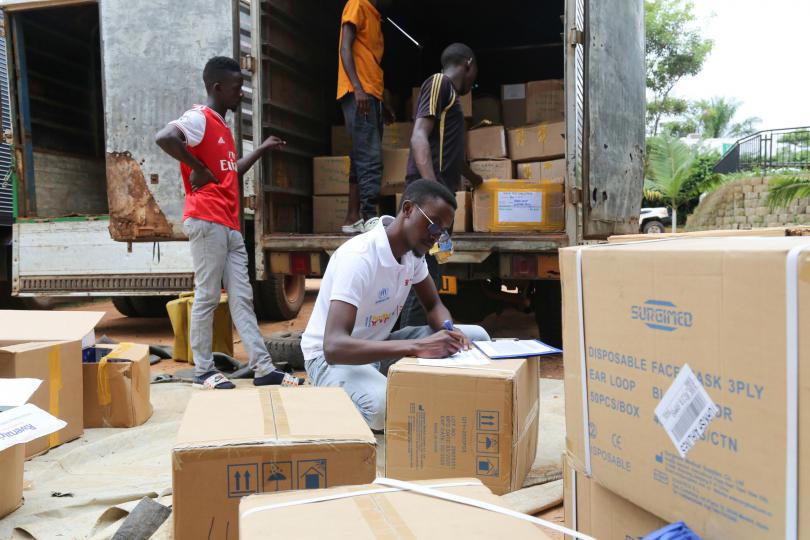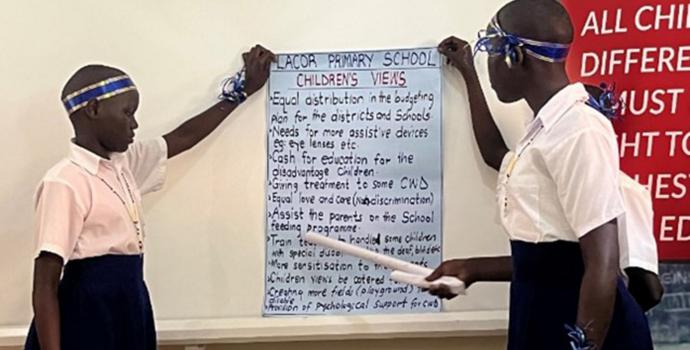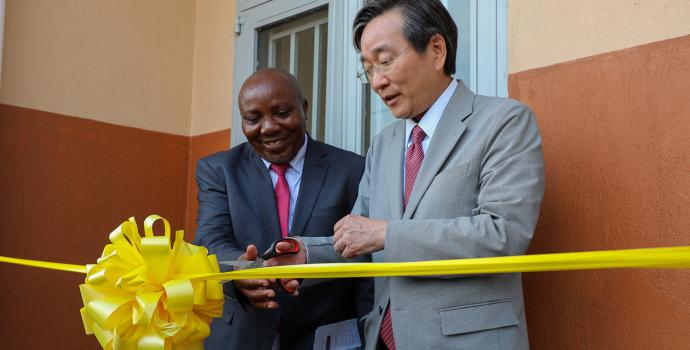Covid-19: Awareness and accurate information saves lives
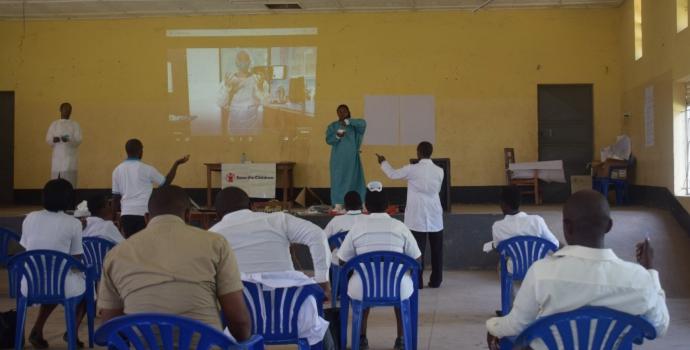
Above: A Covid-19 training session for health workers in western Uganda
In a public health crisis like Covid-19, misinformation can spread even faster than the virus.
“Initially most people don’t know about the virus,” says Annet Kabasinguzi, who works on Save the Children’s health response in remote and rural areas of western Uganda. “They largely believe myths and rumours, such as Covid only affects white people or that once you drink alcohol you get healed, among others!”
If communities don’t have accurate information it puts lives at risk. To counter this, Save the Children is working with the local district authorities and the Ministry of Health to train more than 600 local health workers and journalists, and hold discussions over the radio.
Annet – a nurse and midwife by background – is no stranger to such responses. For much of the past year, she and the team have been working to prevent the spread of Ebola, and addressing similar challenges with stopping myths and rumours.
But Covid-19 is new to everyone and the district taskforce quickly identified that local health workers urgently need the skills and information needed to identify and deal with cases.
So far eight training sessions have been carried out at health centres and hospitals in Ntoroko, Bundibugyo and Kasese districts. Other trainings have also been carried out in northern Uganda.
“All these health centres already had isolation facilities set up, but workers did not have any knowledge of Covid-19 case management,” says Annet. The training was done on-site and in small groups to adhere to rules on physical distancing.
Doctors, clinical officers and nurses are getting a detailed technical training package from government experts and Save the Children staff: “We’re training them on key issues such as the use of personal protective equipment (PPE), clinical management of patients, psychosocial care, and homecare after cases have recovered and been discharged,” says Annet.
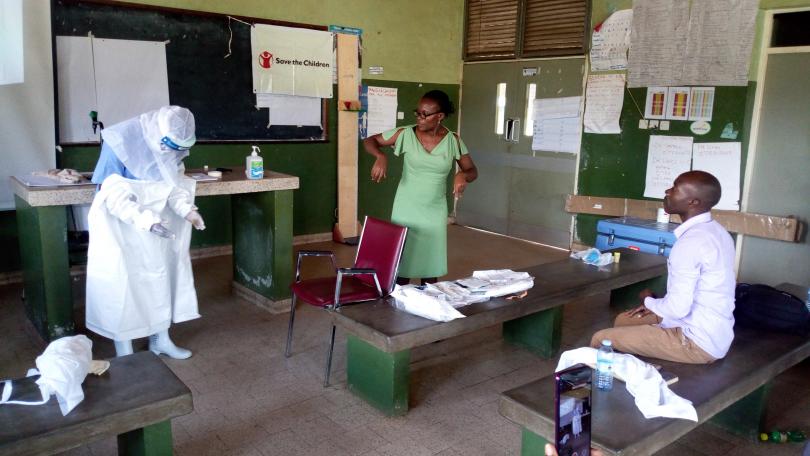
They also receive an overview of the national infection prevention and control strategy, laboratory diagnosis, and oxygen therapy for complicated cases
As part of the response Save the Children has also distributed PPE supplies such as face masks, goggles, gloves and gowns for health teams to use.
Other support staff at health facilities, such as cleaners and drivers, are also receiving training on what Covid-19 is, how it spreads, the symptoms and how to protect yourself.
The importance of the media
One of the most effective ways to share accurate information is through local radio stations, which reach far into remote rural areas in western Uganda – especially when community gatherings are prohibited and movement is restricted.
Radio talk shows provide people with an important platform to not only listen to advice but also call in and ask questions.
“We’ve so far held 20 radio talk shows and the calls to studios show people are beginning to understand,” says Annet, pictured above at a local studio in Kasese.
The talk shows feature government experts and local religious leaders as well as Save the Children staff.
The team is also training journalists from national and local media, to ensure they have accurate information for their reporting and can also dispel fake news about the virus. So far 24 journalists have been trained from major media including UBC, NTV, NBS, New Vision and Daily Monitor as well as local and regional media.
Below: PPE supplies including face masks, gloves and surgical gowns are loaded up for distribution to health workers
